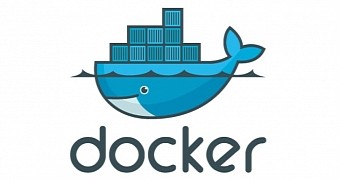Docker, the open-source and powerful Linux container engine software, has reached today, February 4, a new milestone, version 1.10, which promises to introduce a whole lot of fresh features.
Docker 1.10 is the result of months of hard work, and after four RC (Release Candidate) builds, we finally get to taste the latest and greatest features implemented by the project's devs during the entire development cycle. Looking at the changelog attached at the end of article, we can notice that Docker 1.10 has over 100 new features and improvements.
"Docker 1.10 uses a new content-addressable storage for images and layers. A migration is performed the first time docker is run, and can take a significant amount of time depending on the number of images present," reads today's announcement. "We also released a cool migration utility that enables you to perform the migration before updating to reduce downtime."
What's new in Docker 1.10
As mentioned before, you need to scroll download and read the official changelog if you're one of those tech-savvy users who want to know what exactly has been changed in Docker 1.10 because it would be impractical for us to list over 100 changes in this story.
However, we can tell you a little bit about the highlights, which include a new migration utility, as you can see from the quote above, a new "docker update" command, lots of new flags, support for running SELinux in a container when using the Btrfs file system, and support for multi-host networking.
There's also a new logging driver for Splunk, support for syslog over TCP/TLS, and support for overriding the API version in the client. LXC (Linux Containers) support has been removed from Docker 1.10, which you can download right now from our website.

 14 DAY TRIAL //
14 DAY TRIAL //